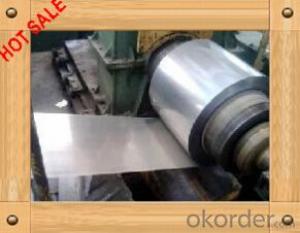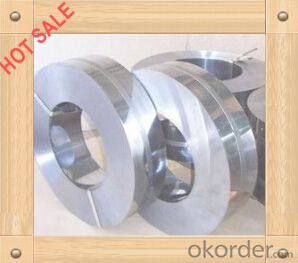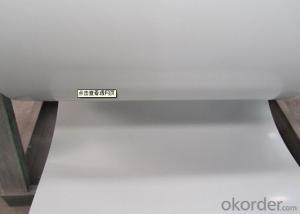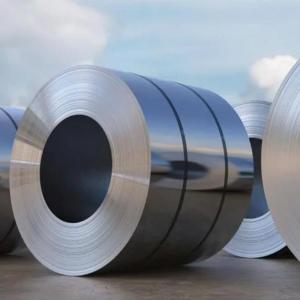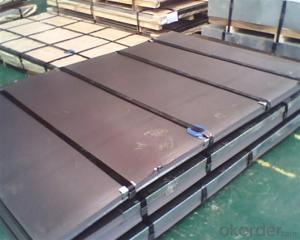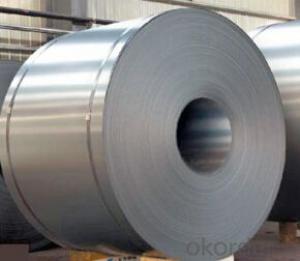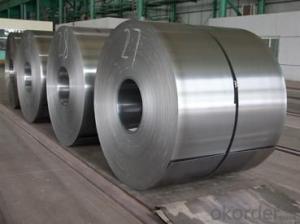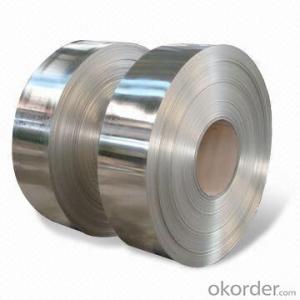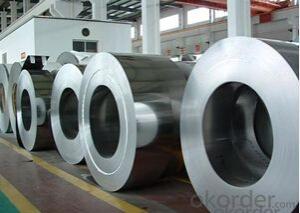Commodity Cold Rolled Steel Coils (DC01)
- Loading Port:
- Shanghai
- Payment Terms:
- TT OR LC
- Min Order Qty:
- 25 m.t.
- Supply Capability:
- 50000 m.t./month
OKorder Service Pledge
OKorder Financial Service
You Might Also Like
cold rolled steel coil description:
Standard:AISI,ASTM,GB,JIS
Grade:SGCC
Thickness:0.14-3.0mm
Type:Steel Coil
Technique:Cold Rolled
Surface Treatment:Coated
Special Use:High-strength Steel Plate
Width:600-1500mm
We do care:
--Good Quality
--On-time Delivery
--Competitive Price
--Efficient After Service
Packaging & Delivery
| Packaging Detail: | Packaging Details: Water-proof film inside,standard export package |
| Delivery Detail: | 15-25days after confirmed order |
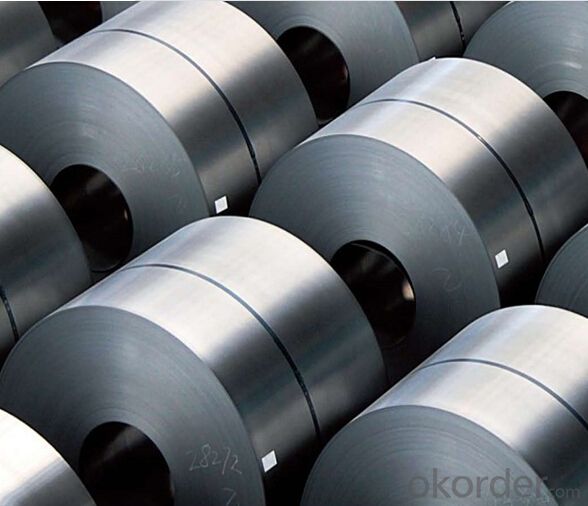
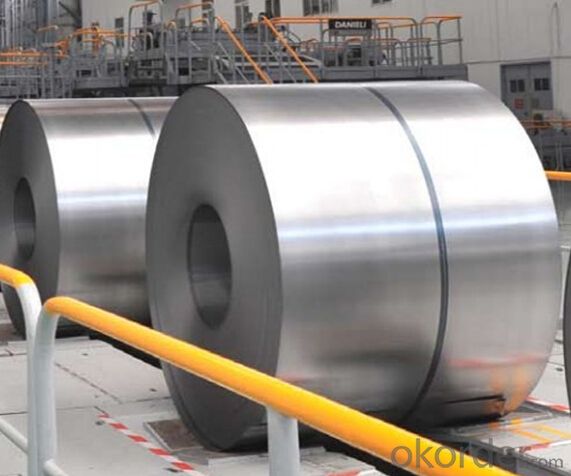
FAQ:
Acceptable payment term and way?
T/T,L/C, T/T + L/C, D/P
Acceptable price term
FOB CNF CIF DDU CPT
Do you accept OA payment terms?
Yes, sure, but it normally depending on the order value
Do you have QC team?
Yeah, sure, our QC team is very important, they will keep the qualitycontrol for our products.
What is the validity of your quotation?
Normally 7 days.
What is your advantage?
24 hour quick response /Customer oriented/ Credit foremost/ Top quality Excellent
What is your acceptable payment term?
TT,LC,OA etc
- Q: How are steel coils processed and shaped into specific products?
- The production of specific steel products involves a series of steps and techniques using different machinery. Initially, steel coils are unwound and flattened using a decoiler and a leveller. This prepares the coils for further processing. Next, the flattened coils are fed into a rolling mill where they undergo cold rolling. This process involves passing the coils through rollers to reduce thickness, improve surface finish, and enhance strength and hardness. After cold rolling, additional processes like annealing or galvanizing may be applied depending on the desired properties of the final product. Annealing involves heating the coils to a specific temperature and slowly cooling them to relieve internal stresses and improve ductility. Galvanizing, on the other hand, involves coating the coils with a layer of zinc to protect against corrosion. Once these treatments are completed, the steel coils are ready to be shaped into specific products. This can be achieved through cutting, stamping, or forming. Cutting involves trimming the coils into desired sizes or lengths using shears or lasers. Stamping involves using a die and press to shape the coils into intricate designs or patterns. Forming, on the other hand, involves bending or shaping the coils with specialized machinery to create curved or contoured products. Finally, the shaped steel products are inspected for quality and undergo any necessary finishing processes like painting or coating. This ensures that the products meet required specifications and are ready for distribution or further assembly. In conclusion, the transformation of steel coils into specific products involves a combination of steps including unwinding, flattening, cold rolling, annealing or galvanizing, cutting, stamping, forming, inspection, and finishing. Each step is essential in producing high-quality steel products used across various industries.
- Q: What is the purpose of steel coils?
- The purpose of steel coils is to efficiently store and transport large quantities of steel in a compact and organized manner.
- Q: How are steel coils used in the production of roofing systems?
- Steel coils are used in the production of roofing systems as they are formed into sheets or panels that are then shaped, cut, and fastened to create durable and weather-resistant roofs. The coils provide the raw material for manufacturing various components of the roofing system, such as metal tiles, standing seam panels, or corrugated sheets, which offer excellent strength, longevity, and protection against harsh elements.
- Q: pros and cons of stainless steel and carbon steel swords
- For display stainless is ok, no maintenance is required, for actual use carbon steel it the way to go, these blades will rust and need to be taken care of.
- Q: What is the minimum diameter of a steel coil?
- The minimum diameter of a steel coil depends on various factors such as the thickness of the steel, the type of coil, and the intended use. However, it is generally recommended to have a minimum diameter of around 3 times the thickness of the steel for optimal performance and to prevent damage to the coil during handling and transportation.
- Q: I know that steel is generally iron with carbon and probably some other things in it, but I'm doing a research paper on architecture in Tokyo, and touching on the Tokyo Tower.The Tokyo work is larger than the Eiffel Tower by 12 meters, but lighter by 3000 tons. The only reason I can find for the difference in weight is that the Tokyo Tower is made of steel and the Eiffel Tower in made of iron, and since the Tokyo Tower is modeled after the Eiffel, there's really not a substantial difference in the amount of metal used....
- Steel Lighter
- Q: How do steel coils contribute to the oil and gas industry?
- Steel coils are an essential component in the oil and gas industry as they are used to manufacture various equipment and structures like pipelines, storage tanks, and drilling rigs. These coils provide the necessary strength, durability, and resistance to corrosion required for the harsh operating conditions in the industry. Additionally, steel coils are crucial in the transportation of oil and gas as they are used in the construction of tankers and pipelines, ensuring the safe and efficient movement of these valuable resources.
- Q: What are the common coil packaging materials?
- Common coil packaging materials include plastic wrap, stretch film, steel strapping, and wooden crates. These materials are used to protect and secure coils during storage and transportation, ensuring they remain intact and undamaged.
- Q: Can steel coils be stored outdoors?
- Yes, steel coils can be stored outdoors, but it is not recommended for long-term storage. Outdoor storage exposes the coils to the elements, which can lead to corrosion and other forms of damage. It is preferable to store steel coils indoors or in covered areas to ensure their longevity and protect them from environmental factors.
- Q: How are steel coils used in the production of industrial shelving?
- Steel coils are used in the production of industrial shelving by being processed and shaped into various components such as shelves, frames, and brackets. These coils are cut, bent, and welded to create sturdy and durable structures that can support heavy loads in industrial settings. The strength and versatility of steel make it an ideal material for manufacturing industrial shelving, ensuring durability and longevity of the shelves.
Send your message to us
Commodity Cold Rolled Steel Coils (DC01)
- Loading Port:
- Shanghai
- Payment Terms:
- TT OR LC
- Min Order Qty:
- 25 m.t.
- Supply Capability:
- 50000 m.t./month
OKorder Service Pledge
OKorder Financial Service
Similar products
Hot products
Hot Searches
Related keywords
